Ioan Hârleț “Nucu” is a violinist who lives in the village of Budești, in Bistrița county. Near the edge of town, in the shadow of a big hill, there is a steep turnoff from the main road leading to a small unpaved street of colorful houses. Everyone living on that street is related to Nucu.
I’ve been to visit Nucu two times. The first time was in October with Fenyvesi Attila and Kovács Blanka Debora, and the second time was in March with Török Ákos and Dan Kunda Thagard.
Nucu speaks Romanian. Thanks to Debora and Ákos for your help translating in Budești, and Oana Chiș for your help later transcribing and translating some of the recordings I made there.
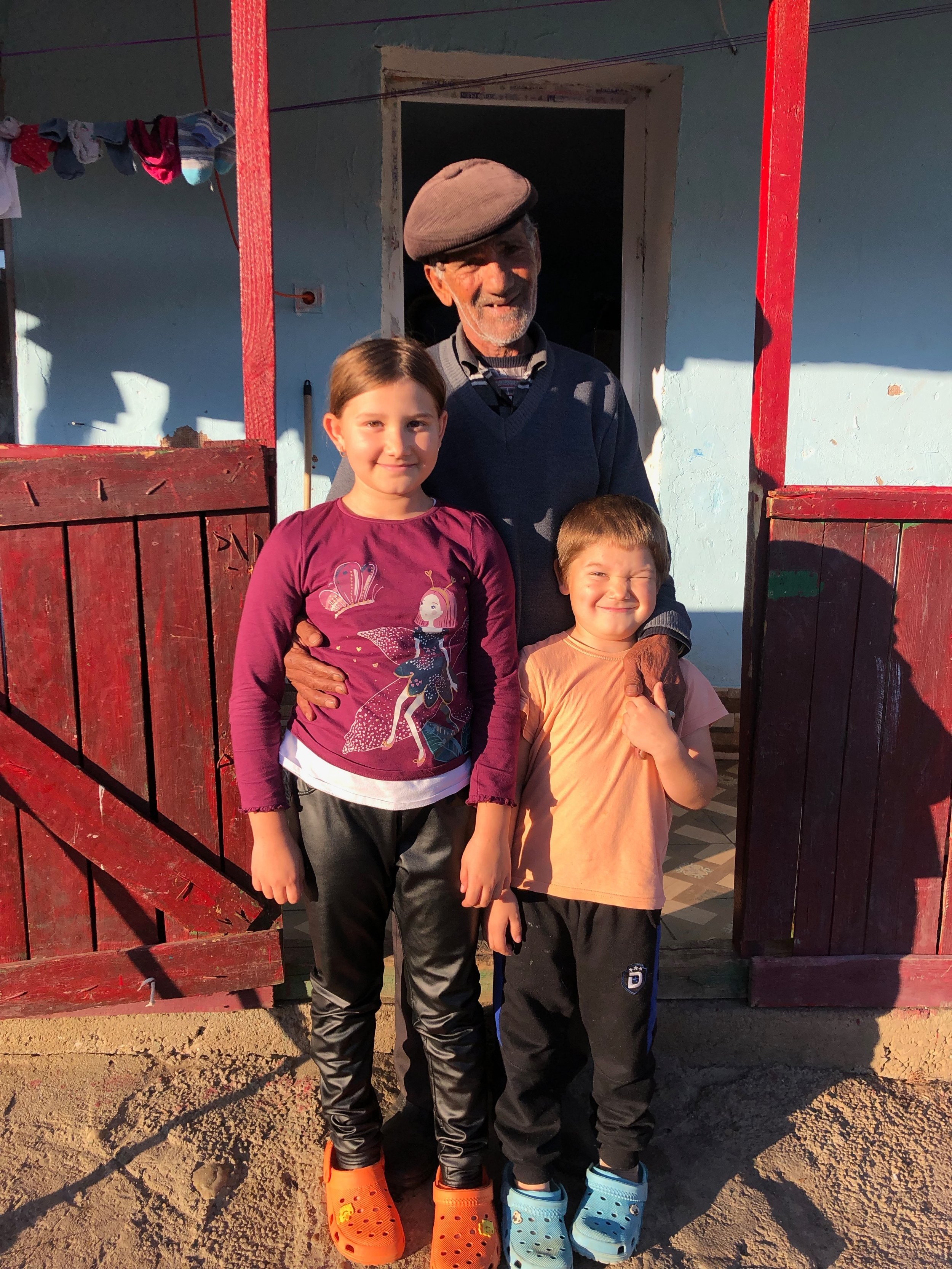
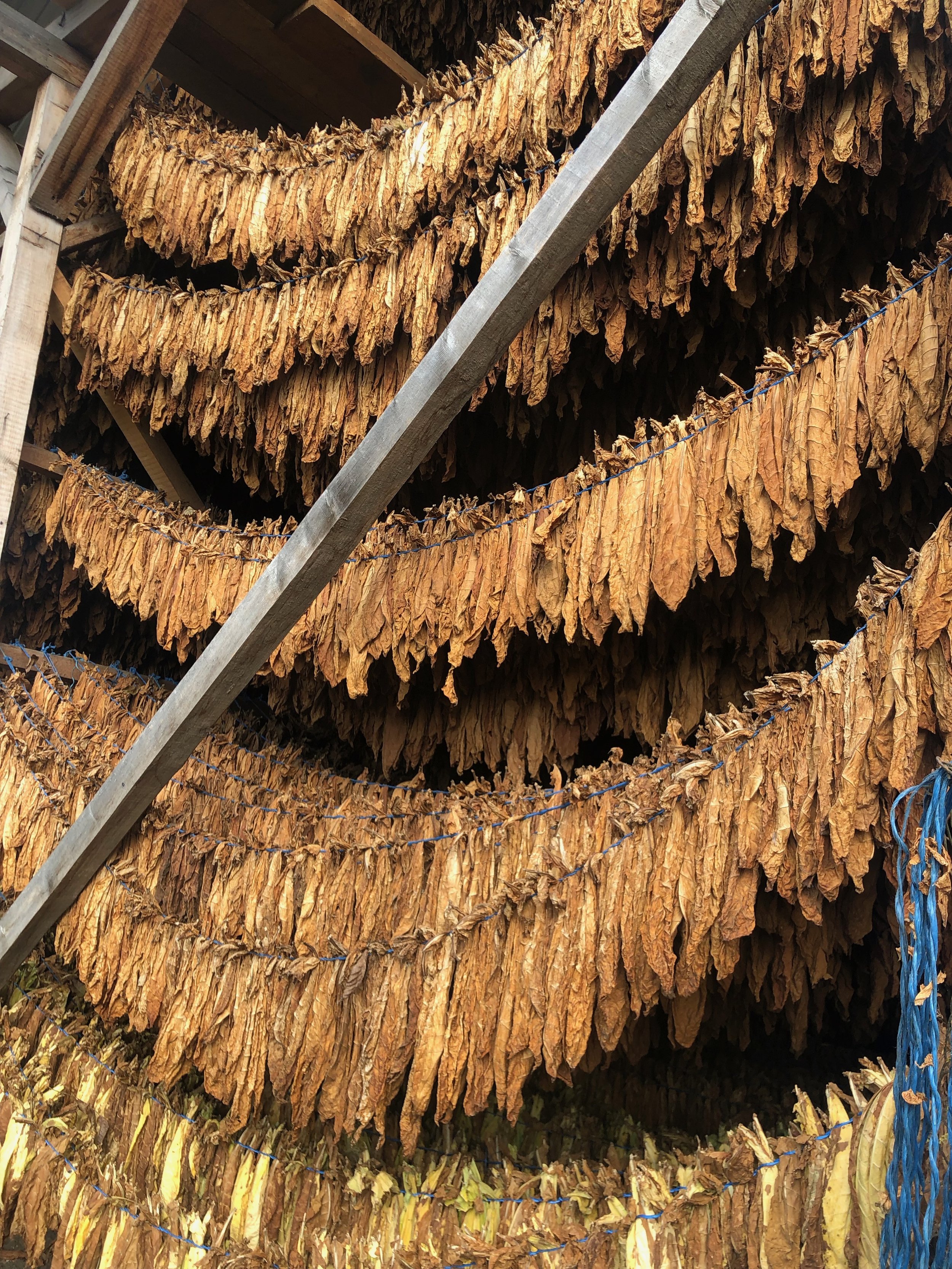
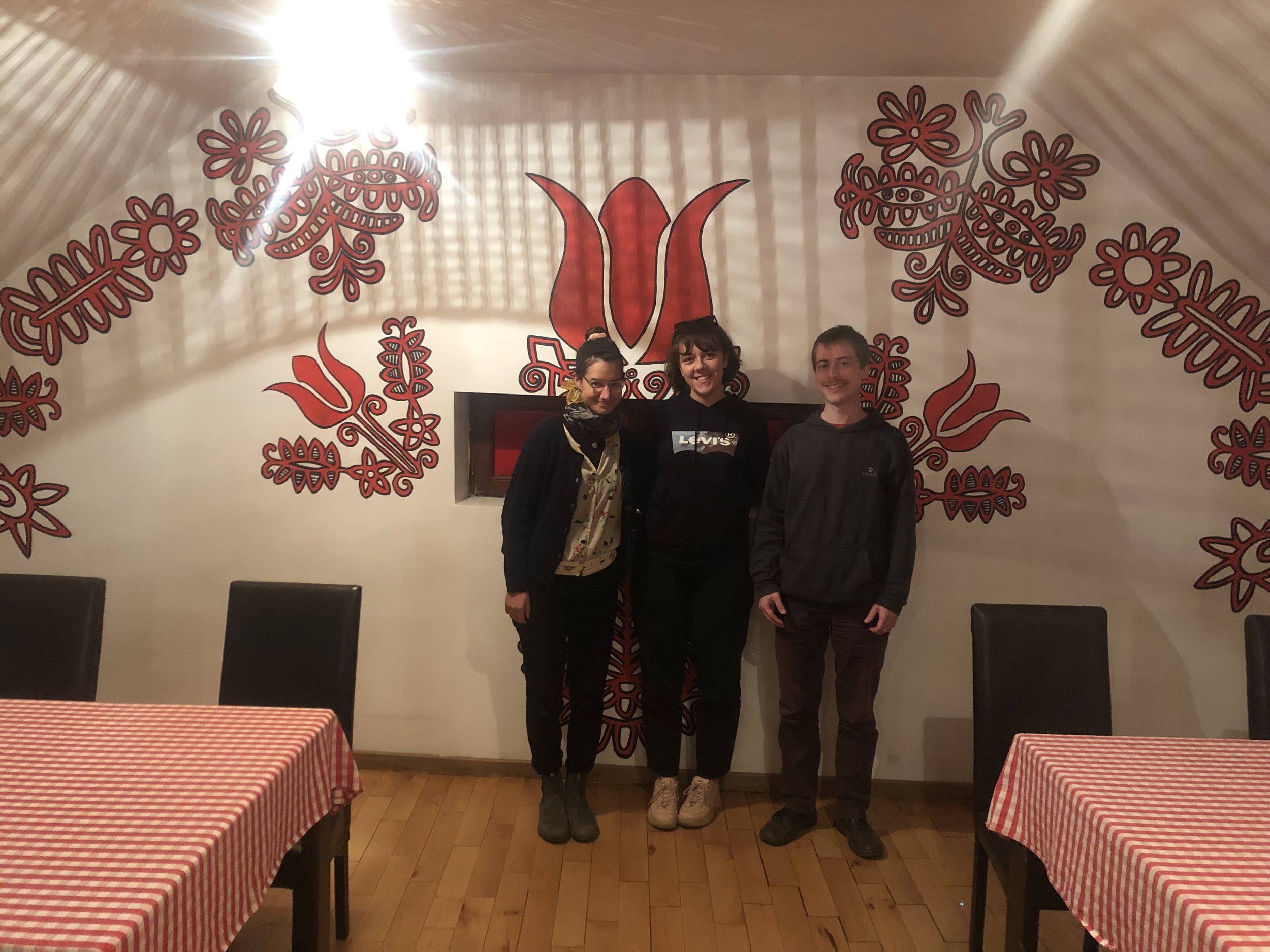
The following is a composite of what Nucu said on both visits:
— He was born on March 11, 1944 in Budești. Nucu’s father played the bass. He remembers being fascinated by music from a very young age. He started playing violin at the age of six. Whenever musicians were playing in Budești, he would watch them, trying to memorize what they were doing and attempting to replicate as much as he could at home:
“Well, I was 6, 7, 8 years old. They were hiring musicians for summertime, from the end of Advent (Christmas fasting) to autumn. Every Sunday they were hired to play after the celebration, after church— there was a beautiful lowland in the center and they played there every holiday. And me, as a child, I was going and listening to musicians and after a while I started to love it, and my dad had a violin in the house. And I started to play it and catch some things to put out a song, and then my father took me to learn it. I studied it for 4 years.”
— By the time he was nine years old, he had figured how to play some songs on his own. His dad saw that he was clearly interested, and organized for him to take lessons every Sunday with a local musician, Covaci Alexandru. Nucu said that Alexandru was “the best musician from around the region”. He died about 30 years ago.
— Those lessons consisted mainly of Covaci Alexandru playing and Nucu watching him, trying to memorize the songs, and then going home and figuring them out. Covaci played and taught by ear, like most of the musicians in the area. Nucu said that very few musicians in his scene used notation, and that he doesn’t see the point of using notation to learn folk music.
— He started playing with a band:
And then, when I was like 9, 10 years old, here in our village I played in the summertime, and in neighboring villages I started to play at weddings; I formed a band. And I still learned, I still learned until now, now I don’t learn because now it is done.
We were just 3 people: a violin, a contră or braci— however you call it, we call it “contră”— and a gordonă contrabass. They were older than me, and they told me “you have to do it that way and that way” because I was young, 10-11 years old. My father was playing contrabass and we had a good bracist.
— He has warm memories of performing with a local folk dance troupe. They used to tour the country for competitions, and they won some big prizes. He said, “there were many bands there (at competitions), from Palatca, from Ceuaș, but people liked our music and dance from Budești very much”. Only two members of the dance troupe are still alive now.
— When Nucu was in his prime, people would book him seven or eight months in advance for weddings— they planned weddings around his availability. In the early 2000s, people started hiring manele bands instead of the traditional folk bands. Nowadays, they just use recorded music. He said that he thinks that musical traditions are dying off faster in Romania than in other places.
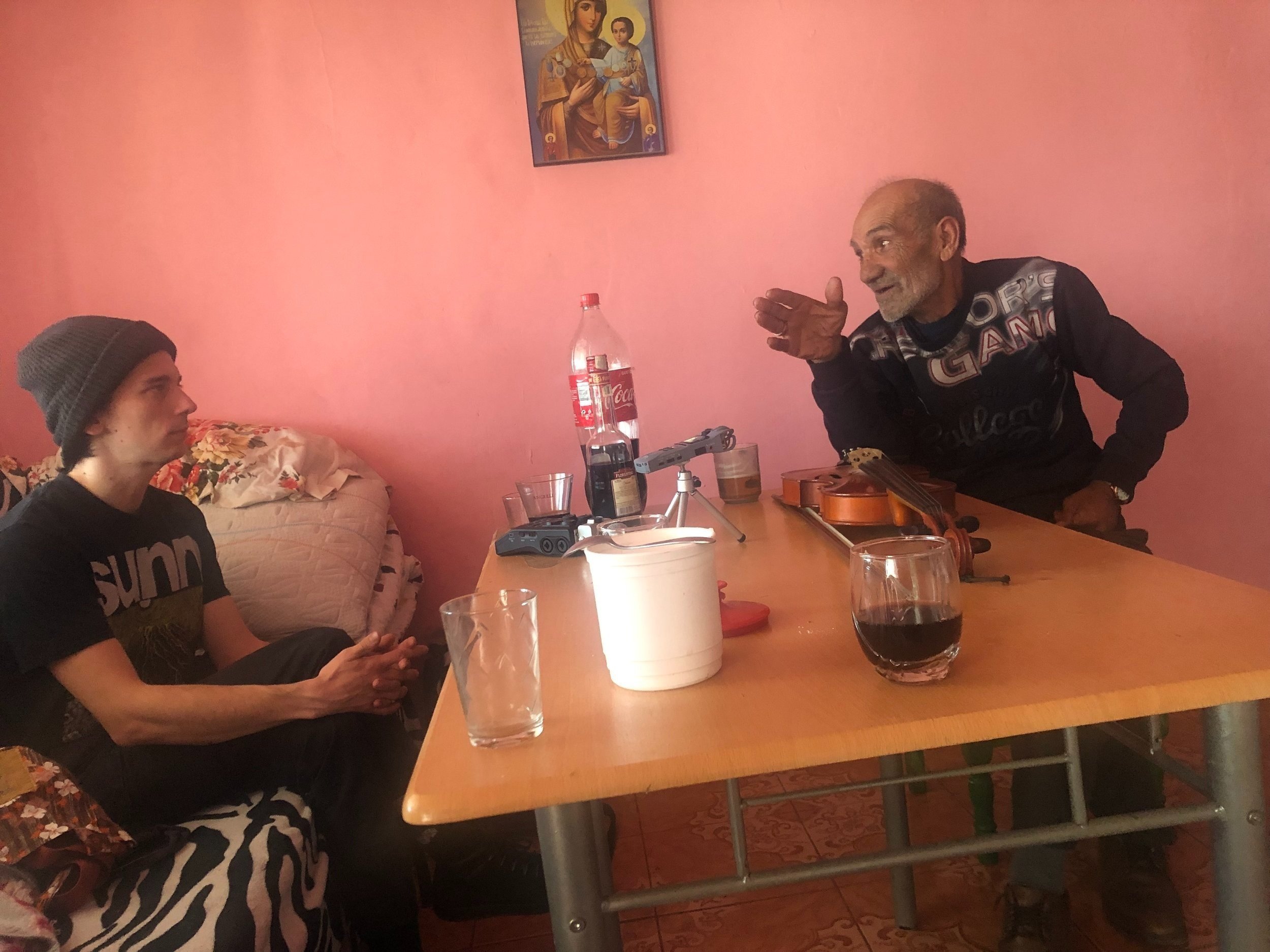
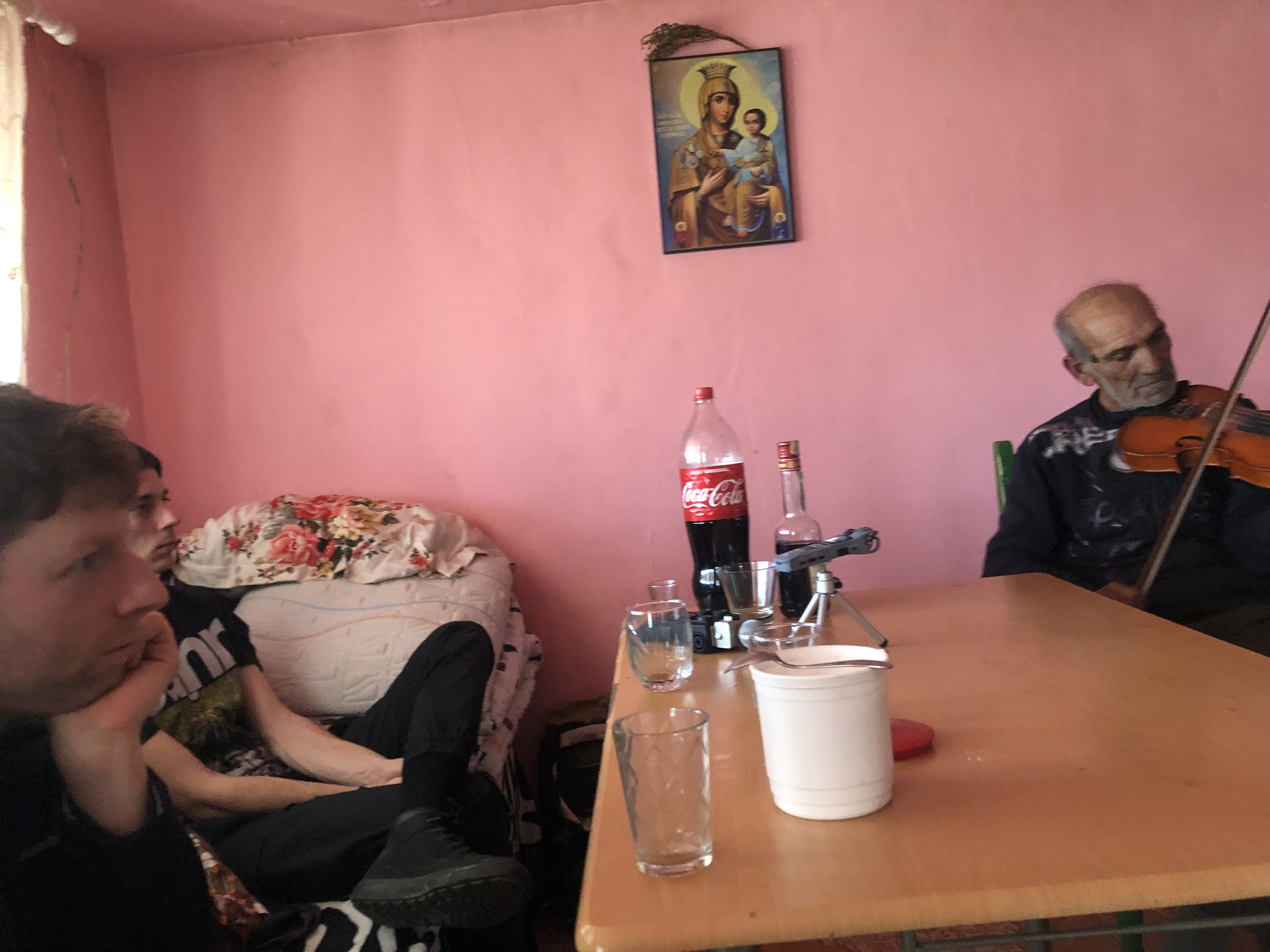
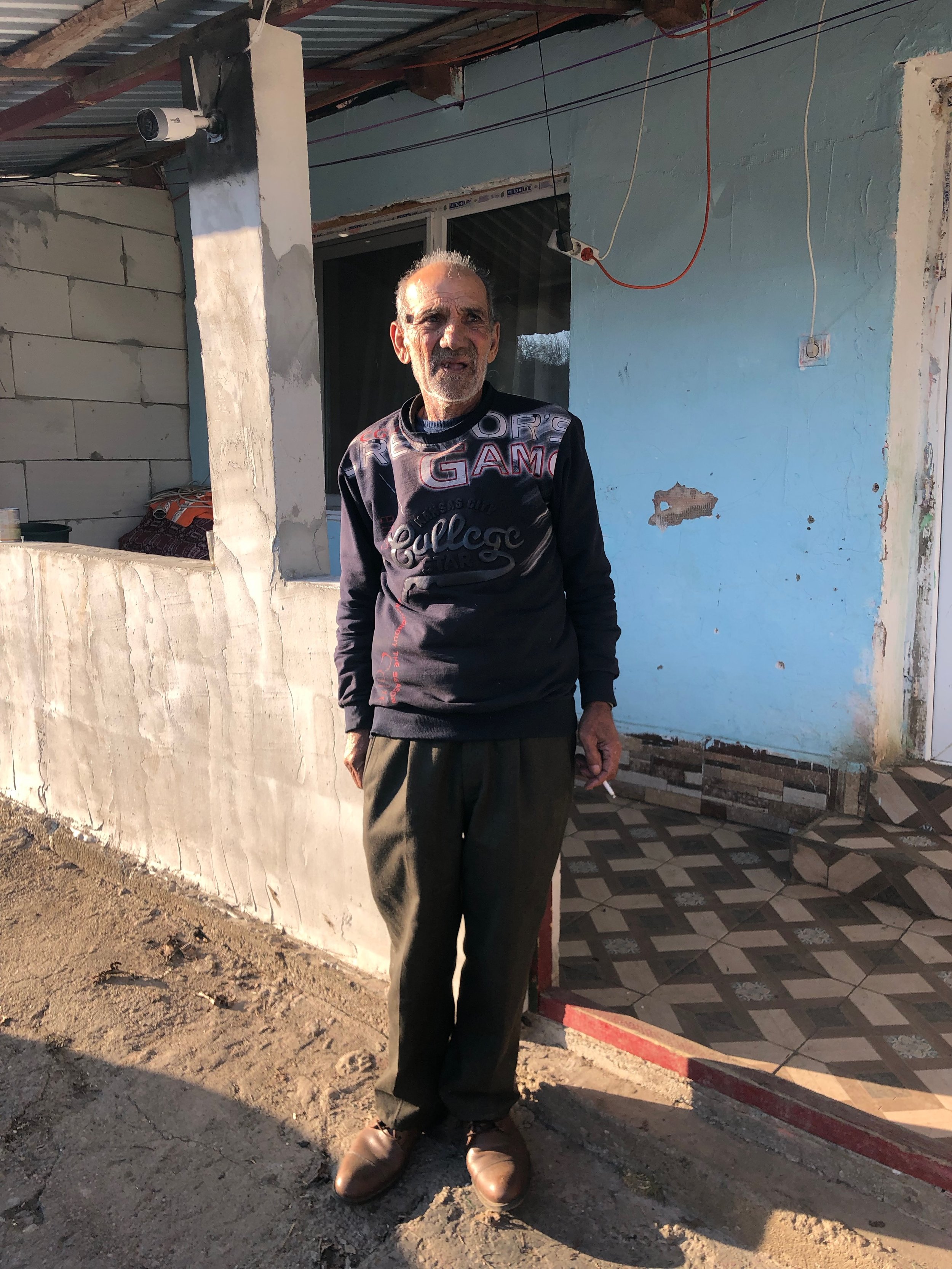
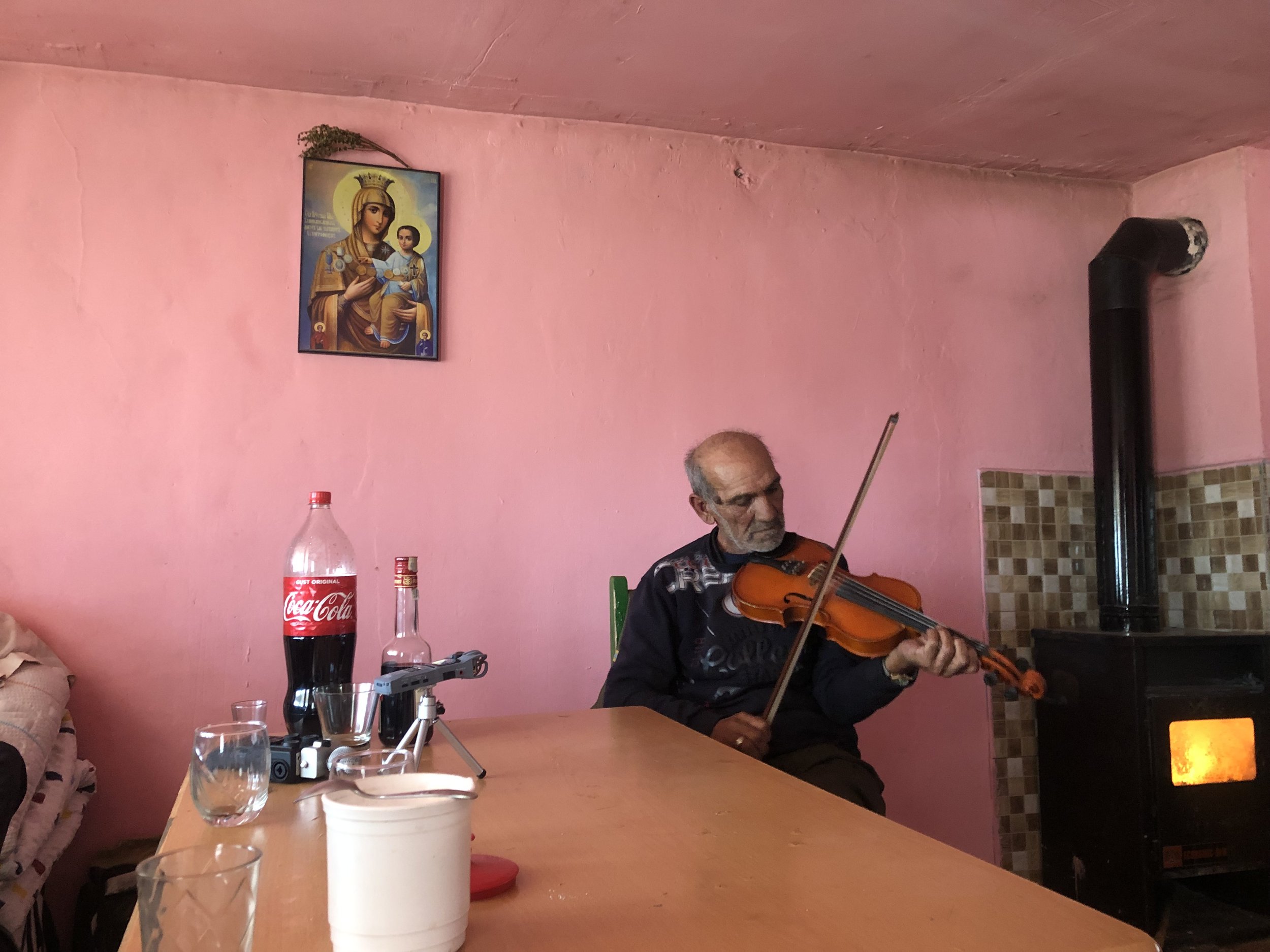
— Nucu plays using a left-hand technique I’ve never seen before: he almost exculsively uses the first 3 fingers, without the pinky finger. [He has always played this way, even prior to the stroke that reduced his finger mobility.] I would like to find out more about if there are other fiddlers in the region who use this fingering style.
— He was invited to Hungary starting in 1997 to perform and teach, and has returned there many times. Táncház musicians and institutions there have taken an interest in his style of playing, which I find interesting because Nucu said that he played primarily for Romanian events and audiences. He said that there are only two Hungarian families in Budești. Nevertheless, the Hungarian government even awarded him a pension, which he used to build houses for his family.
— He’s self-effacing and modest. He said that when he was first invited to Hungary, he was asked to teach a workshop for music teachers who were all classically trained, and he wondered “how could I teach these people”. But they reassured him that they found value in learning the way he plays.
— A few years ago, he suffered a stroke which necessitated a long recovery. He wasn’t sure he would be able to play again. He said he cried when he picked up the violin again and realized he could still play.
I was playing very well for a period of time but for some time now, maybe because I am old and maybe because I had two facial paralyses, this is why I speak so bad, and I had a cerebral necropsy, that was the most serious of all. And since then my left hand doesn’t help me, I lost my fingering and I can’t play with my fingers as I know from my head. My head works, I’m old but my head works, but my fingers are not working as they used to. I am no longer playing to practice, and maybe if I would practice more my fingers would work better.
— Referring to musicians he used to play with:
They are all dead! Smoke, dust, they are gone. I am the only one left, but I don’t have much time either and I will leave too. I am very sorry that I have 40 nepoți (grandchildren, grand-neices and -nephews), but none of them learned anything. I am very sad because of this. Bicycles and football! (is all they’re interested in).
Hearing Nucu play makes me feel as if I’m in a time machine— I’ve never heard anyone who sounds quite like him. I’m very glad I have been able to meet him, and am looking forward to going back to Budești soon.